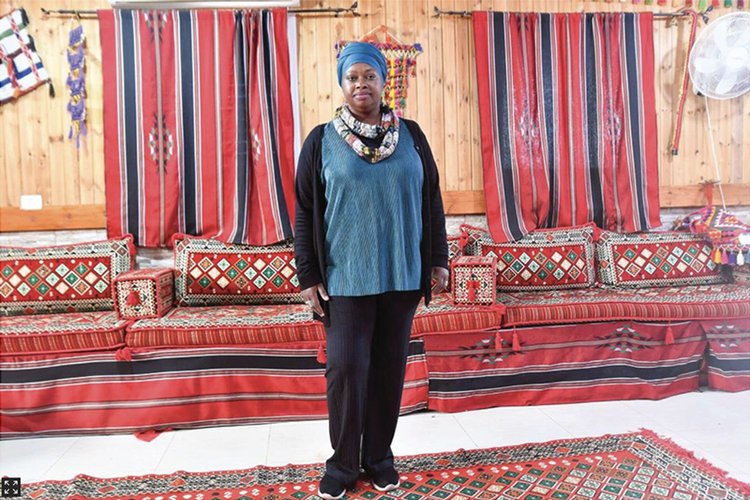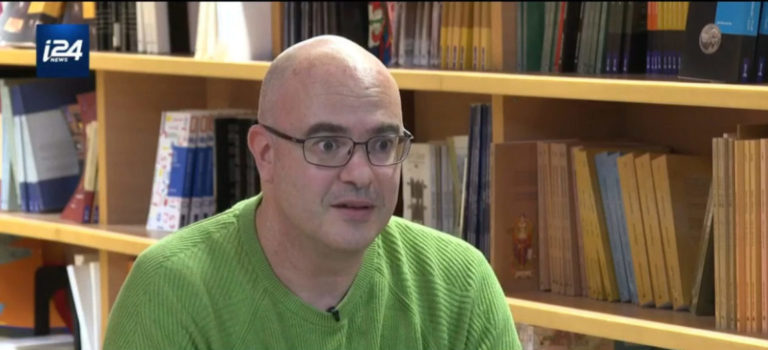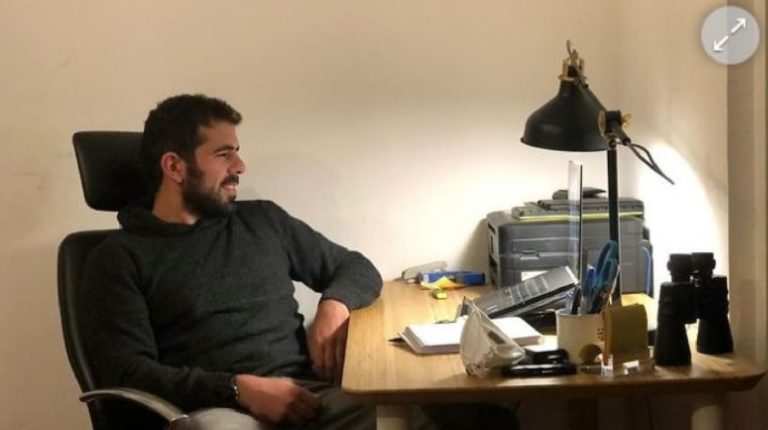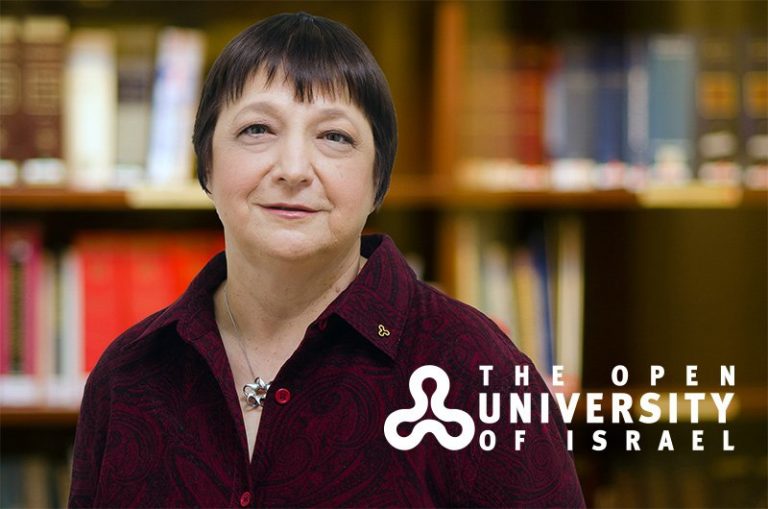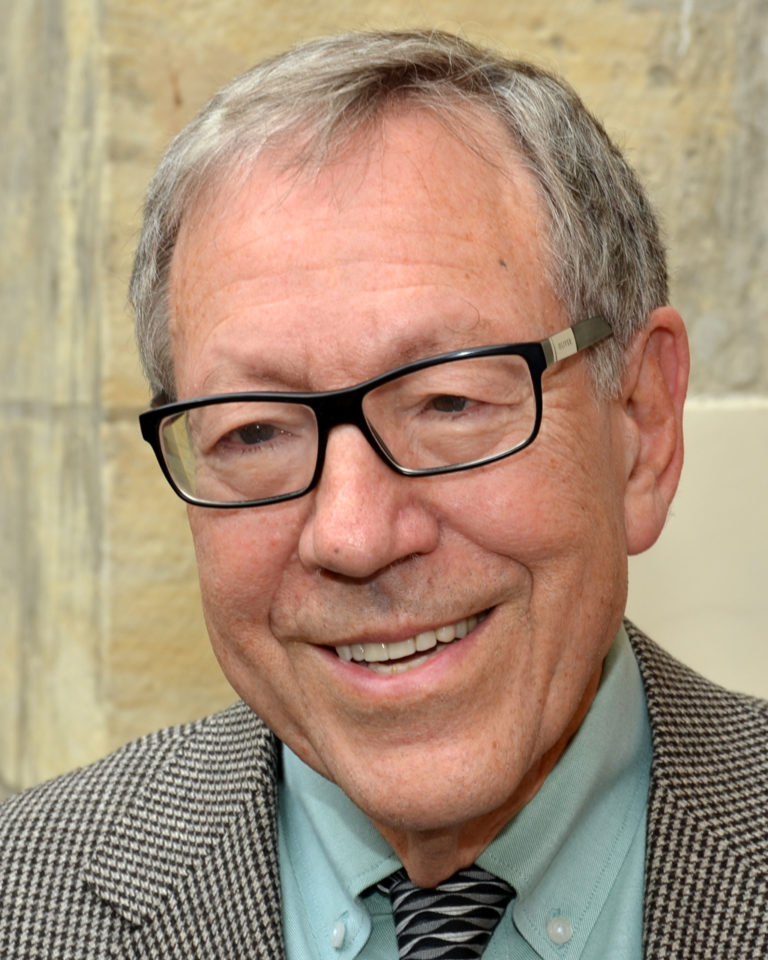“Today I am proud to be Afro-Bedouin”
“A group of women from an affluent city arrived, and when they saw the laundry drying rack in the yard, they asked: ‘People still dry laundry like that?’”
Meet Elham Alkamlat, a tour guide in Rahat. She doesn’t think of it as the “Wild West,” as Bennett said, and promises that if you come to visit her, no one will steal your car. Her life story is no less captivating than her tours: she paved her own path to a career against all odds, succeeded in giving birth after years of trying (and just then, her husband decided to take a second wife), and got divorced over a COVID-19 test
By Techiya Barak | Photography: Chaim Horenstein
After 12 years of fertility treatments, when her eldest daughter was finally born, Elham Alkamlat realized that a full-time office job was not as relevant anymore. She looked for a more flexible job that would allow her to earn a respectable living while also satisfying her heart. The idea emerged from an unexpected angle: a women’s delegation to India. “I was nearing the end of my maternity leave, and I didn’t know what a woman like me, without a degree, could do. While I was nursing my daughter and watching television, there was suddenly an “Always” advertisement that announced that they were putting together a delegation of ten women who would undergo leadership and empowerment training, and at the peak of the program, they would travel to India to meet with other women who contribute in their community. I was mesmerized. I wrote an email, and they invited me to the screening process. Out of thousands of women, ten were selected, and I was one of them. The training program required that I travel from Rahat to Wingate a few times a week, and in the end, I traveled to India for eight days.”
Q: I ASSUME THAT IN THE CONSERVATIVE SOCIETY IN WHICH YOU LIVED, YOU HAD TO JUMP OVER A LOT OF HURDLES TO LEARN FAR AWAY FROM HOME AND TO TRAVEL ABROAD FOR A FEW DAYS.
“I had to convince my husband and his family, with whom we were living, to watch the baby while I had classes. My mother volunteered to help. In India, I met women from different cultures who were struggling to realize a vision or who were entrepreneurs in a male environment, and then I started thinking: why travel so far when we can simply travel to the Negev, to Bedouin society? I returned to Israel and started planning: I would host groups of women at our home and tell them about Bedouin society, with an emphasis on the women.”
Alkamlat returned to Israel wearing her new entrepreneur’s hat. She started to host groups of women in a tent called a shig, located outside of the regular home. Most of the time, the shig is used as a space for social gatherings limited to men only, until Alkamlat announced that she was interested setting foot inside. “Bringing groups into your home is very revealing. I had to enlist the entire family’s support and consent,” she recalls. “While I would speak openly about problems that Bedouin women deal with, my husband’s mother would prepare tea and coffee for the group, serve them, and listen to my criticism.”
Q: WHAT CONTENT DO YOU SHARE WITH THEM?
“I talk about polygamy, which is a threat looming over every Bedouin woman’s head, weddings of minors that happen because if every man marries up to four women and has between 20 to 40 children, how can he support them all? The moment he married off his daughter at the age of 15, she becomes the responsibility of a different man. I also talk about divorce, which depends solely on the husband’s decision, and about girls dropping out of school. When a girl reaches seventh or eighth grade, her father tells her to stop going to school. They are registered at the school, and the budgets for them are received, so the authorities don’t even know that they have dropped out.”
Q: HOW DID THE FAMILY REACT TO YOUR CRITICISM?
“It wasn’t easy for them to hear it; these are sensitive issues. But they didn’t silence me, and I continued to bring groups. I slowly grew. Women came to celebrate birthdays, and female prison guards came for a team-building event. Later, I agreed to host men in the groups, on condition that there were also women present, and then soldiers and officers started coming. These encounters lead to funny moments or situations that emphasize the gaps. A group of women from an affluent city arrived, and when they saw the laundry drying rack in the yard, they asked: ‘People still dry laundry like that?’
Wedding
“At the age of 19, I was married to a cousin”
Alkamlat (47), divorced and a mother of four who has been living for the past year in Be’er Sheva (beforehand, she lived with her former husband’s family in Rahat), is an impressive woman who speaks spectacular Hebrew (it’s possible to get an unmediated impression of her on Kaan 11’s show, The Hitchhikers).
Born in Ramle, she was the seventh of 14 children in her family. “My parents are from the Negev. They grew up near Hura. After they got married, they lived in Rahat for a while. From there, they moved to Gedera, Sitria, and then finally Ramle. My father was a sociable man but drank a lot and barely worked. My mother is a strong woman and was the economic mechanism of the home. She worked in agriculture and in cleaning,” she relates. “There were guava trees in our yard. My mother also planted bananas, eggplants, mulukhiyah, and okra. My uncle and his family lived next door to us, and our homes were open. All of the cousins played together in the yard.”
Q: DO YOU REMEMBER YOURSELF AS A GIRL?
“I liked to ride horses and donkeys. We had cows and dogs in the yard. From a young age, I helped my mother with her work. I remember that we worked at the farm in the neighboring moshav, Yashrash. My teachers encouraged me to study at a high school outside of Ramle, but I chose to stay home and help out. I didn’t take the matriculation exams, and later on, I completed them via external studies in Rahat. I heard the words ‘you’re wasting yourself’ many times.”
Q: DID YOU SUFFER FROM PREJUDICE DUE TO YOUR SKIN COLOR?
“Black Bedouins are a minority in Arab society and considered the lowest class that there is. My ancestors were kidnapped from Africa and became slaves, and that is how we are treated. As a girl, I didn’t feel inferior because of my color and didn’t feel different. Only after I moved to Rahat after my marriage did it become an issue. Once, a relative whose skin is lighter than mine called me a ‘conceited slave.’ In Rahat, I understood that if I’m black, I’m considered stupid, uncreative, and worthless. This is an obstacle for employment and for marriage. White Bedouins don’t marry black Bedouins. Today, I am proud to be Afro-Bedouin.”
When she finished 12 years of schooling, she wanted to work and study like her friends, but she realized that the only option she had was to get married. “I took a silversmiths course and started working in the field. There are a lot of limitations for Bedouin women, but the fact that we lived in Ramle helped navigate them a bit. I was still not allowed to go out alone at night, and I could attend weddings only if I went with female friends. My mother wanted me to get married and I refused. I had Christian and Jewish friends. They were learning how to drive and working, and I wanted to be like them. One day, my mother pressured me to tell her whether I had a boyfriend who I was hiding, and if that was the reason I refused to get married. I told her no, that I simply didn’t want to get married. I realized that I had no choice, and I told her that I would marry the man who she picked for me. She and her sister decided to set me up with her sister’s son. Among Bedouins, being relatives on the women’s side is irrelevant. Because he is my cousin on my mother’s side, we aren’t considered relatives. He belongs to the Trabin tribe and I belonged to the Abu Sayid tribe. I barely remembered him from my childhood. I suddenly met a tall, handsome, high-quality young man and I said ‘yes.’ He was a scout in the army and worked as an ambulance driver and paramedic in Magen David Adom.”
At the age of 19, after the wedding, she moved to live at her husband’s family’s home in Rahat and realized that not only would she have to acclimate to a new neighborhood, but also to a more conservative lifestyle. “We lived on the second floor of his family’s two-story house. On the first floor lived his parents and 11 siblings. It was clear to me that I was going to find a job and start working, but they notified me that it was not customary for a bride to work during the first three months at least. She is meant to sit at home and people come to bless her. If she starts working immediately, it is a sign that her husband is unable to support her.”
Q: WHAT DID YOU DO?
“I was shocked. I came from a culture of working women. It took time until I was able to go to work. I heard about a Bedouin insurance agent who was looking for a secretary, and I started managing his office. There, I was exposed to the dismal reality of Bedouin men who register their car on their wife’s name. If the collection office arrives, she gets in trouble. If they have a car accident, they herd their wife into court as if she was a sheep.”
Career
“I didn’t want to sit at home”
The social motivation has been part of her life since her twenties. When she was 25, she founded the Tza’ad Kadima organization with other young adults to promote education in Rahat. “I was the coordinator of the women’s program at the organization and I organized events to empower women. For example, an entrepreneurship course for women in collaboration with MATI (Entrepreneurship Development Center). I learned how to fundraise and write plans that helped the organization receive funding.”
Q: SINCE WHEN HAVE YOU IDENTIFIED YOURSELF AS A FEMINIST?
“Since I participated in a leadership course with WIZO in 2002. A few years later, I took a group facilitation course, and I realized another thing. Jewish men in the group commented to me and to the other Bedouin women there that we were the last ones to speak. It was then that I realized that my opinion matters. I was used to my ideas not mattering. Suddenly, people wanted to listen to me and I was important.”
Later, she also worked at an organization called Yedid as the coordinator of rights utilization at the Rahat branch. “I helped people fill out forms and solve problems that they had with Israeli bureaucracy, which they had no idea how to handle themselves.”
When she gave birth for the first time, she left the organization and focused on tours. “I had 4-5 tours a week. Because I know English, I also hosted groups from abroad. I started to grow and create collaborations with other women in Rahat. Women cooked meals for the groups that I brought, others did henna art for the guests, and I presented and sold art made by local women. I gave the profits to the artists – I didn’t take a commission. I started to take groups to other homes, to tours of the shuk, to Al Nor Mosque and to the visitor center in Rahat. I also created food tours. But during the COVID-19 pandemic, everything stopped.”
Q: WHAT DID YOU DO?
“It was clear to me that I wouldn’t sit at home. I started working as an interpreter at the courthouse in Be’er Sheva. I found myself translating at a hearing for two brothers and their father who allegedly murdered their divorced sister and hid her body. When I translated for them, I was attentive in order not to miss what they were saying, but afterward, I was very agitated. How could a state with technologies not be able to find a body? If someone hides me, will the state not find me either? In another case, I translated for the family of a 13-year-old boy who worked in a cannabis nursery. That child from a disadvantaged neighborhood didn’t go to school because he had to support his family. I thought about my son, who attends an excellent school and was participating in a leadership course at the time.”
“When the market opened, I started working as a guide at the Museum of Bedouin Culture at the Joe Alon Center. My business came back to life. At the same time, I was about to complete my Bachelor’s degree in Administration and Public Policy at the Open University. This is a special program for the Bedouin population. The state helps with the funding.”
Q: FROM YOUR PERSPECTIVE, RAHAT IS A TOURIST DESTINATION, BUT IN THE NEWS, IT IS SPOKEN ABOUT IN LESS POSITIVE CONTEXTS. BEDOUIN CRIME HAS RECENTLY MADE HEADLINES; NAFTALI BENNETT VISITED THE SOUTH AND CALLED IT “MILITIAS LIKE IN THE WILD WEST.” HOW DO YOU FEEL ABOUT THIS?
“There is not a group who registers for a tour who doesn’t ask me with concern whether it’s dangerous to come to Rahat. They ask if the cars that they arrive with will still be there at the end of the tour or if they will be stolen. I explain to them that there is no connection between what they hear in the media and what is actually happening. I explain to them that the city is connected to a network of cameras and that not one person on my tours has ever had their car stolen here. These questions insult me and show their ignorance. There are 300,000 Bedouins living in the South – are they all out of control? Are they all criminals? I am a law-abiding citizen, and there are many more good people like me. There are Bedouins who are lawyers, doctors, pharmacists, and teachers who suffer from this situation. There are Bedouins who volunteer with the Border Police because they are worried about their children who go out at night or worried during the wedding season in the summer, when people shoot in the air in celebration. It is a mistake of the state and of the police who do not try to handle those at the fringe of Bedouin society.”
Births and Separation
“Organizing a new life”
At the age of 31, she became pregnant and gave birth to her eldest daughter (who is now 16). Afterward, she gave birth to three more children (14, 11, 8). “During the first year of our marriage, women would put their hand on my stomach and say, ‘Well, we don’t hear any thunder noises (contractions) – nothing is on the way?’ Alkamlat recalls sadly. “Their intrusion into my most personal space was terrible. For years, I underwent fertility treatments at Soroka hospital, until I got a blood infection and was hospitalized. When I saw that the treatments had almost killed me, I told myself that I was more than just a vessel for bearing children – I was my own person. I decided to stop the treatments.”
Q: THAT IS A RADICAL DECISION IN A CONSERVATIVE, RELIGIOUS SOCIETY.
“We have a saying that a tree that does not bear fruit needs to be cut down. I took into account that my husband would take another wife if I didn’t get pregnant. The fact that I couldn’t bring children into the world turned me into an incomplete woman. For years, we spent our time with my former husband’s family because with just me alone, it wasn’t considered a family. Only when the children arrived did we start celebrating birthdays with our own nuclear family.”
Q: SO HOW DID THE PREGNANCY HAPPEN IN THE END?
“After a few years, I heard about couples from Rahat who had undergone treatments by a doctor from Hebron. We contacted him and I got pregnant. I gave birth via C-sections, so after four children, I decided that it was enough. I wanted to fulfill my potential and to succeed in giving my children more than I received – attention, clothing, and extracurricular activities.”
After the children were born, her former husband notified her that he was going to start looking for a second wife. “I prepared him a festive meal to break the fast and sat down next to him. The atmosphere was good, when suddenly, he said that he wanted a second wife – that his friends had found him a 40-year-old woman from Hebron. I didn’t say anything. I just listened. After he met her, he decided that she wasn’t right for him and continued to search.”
They separated during the COVID-19 pandemic. According to Alkamlat, her former husband would not allow her to do a COVID-19 test. “Last September, I suffered from headaches, weakness, a dry cough, and knee pain. I told my husband that I wanted to get tested, and he told me not to go. I went to get tested anyway. When I wanted to come home, I felt so sick that I called my daughter to ask her to have somebody pick me up. She called her father, and he came. When he realized that I had done a COVID-19 test, he got angry and said, ‘You got tested behind my back?’ The whole way back, there was shouting in the car.”
Q: WHY DID IT BOTHER HIM THAT YOU GOT TESTED?
“Although people were asked to get tested in the sermons in the mosques, in Rahat, it was embarrassing at that time to be sick. They literally cut off contact with those who were sick. Add to that the fact that a Bedouin man expects his wife to follow his orders. I felt that if I didn’t get tested, it was as if I was taking a knife and killing innocent people.”
Q: WHAT HAPPENED WHEN YOU GOT HOME?
“I went into quarantine and waited for the results. I told my children that they were also in quarantine in the meantime. One day, my youngest daughter left the house. I called for her to come back. He got angry again. When the representative from the Health Ministry called to tell me that I was positive and that I could choose whether to quarantine at home or in a hotel in Jerusalem, I asked to go to the hotel. It was Saturday morning. I left money for my children, packed a backpack, and took 50 shekels for myself. The ambulance waited for me 500 meters from the house, like I asked them. My friend checked on the children every day. During those ten days, I started to organize my new life.”
“I decided to go to a Corona hotel and asked the ambulance to wait for me at a distance. I left money for the children and packed a backpack. I left the house like a thief.”
Alkamlat shares that her husband decided to divorce her (he said “Divorced, divorced, divorced, like in the Egyptian movies”), and she rented an apartment in Be’er Sheva. Later on, her children came to live with her. Last September, a year after he divorced her, she became officially divorced too.
Q: HOW DID THE CHILDREN ACCLIMATE IN BE’ER SHEVA?
“They have a private tutor and they already feel more confident speaking Hebrew. It pains me that they are disconnected now from the place where they grew up, although they continue to learn in Rahat. If I am late because of a tour, they go to eat at their grandmother’s house, my ex-husband’s mother. They are also in touch with him.”
Q: WHAT DOES YOUR LIFE LOOK LIKE TODAY?
“I put myself in the center and am also teaching my daughters to put themselves in the center. We have a scheduled day when we check out books from the library and sit at a café nearby to talk and read. People ask me if my daughters are going to get married at a young age in an arranged marriage. While the father is the one who decides, I – with the little power that I have – will oppose their marriage before they finish a degree. I would like to believe that I am influencing the way that they think.
THINGS TO DO IN RAHAT
Recommendations from Elham Alkamlat
1. See the Al Nor Mosque. The first mosque built in Rahat; especially beautiful.
2. Eat at Mansaf Al-Sultan. A restaurant with one dish – mansaf (there are two versions, chicken and lamb). Fifteen years ago, when the restaurant opened, women were embarrassed to order there, because a Bedouin woman must cook for herself. Today, they buy without thinking twice. The small restaurant is located next to the marketplace square (there are no street names in Rahat).
3. Shop at Elsham Sweets. Don’t skip this stall that sells a Syrian dessert called Karabij Halab. These are fried dough sticks dipped in sugar water syrup. One stick costs a shekel, and a nice box of them costs ten shekel. The stall is located in Neighborhood 7, next to the Sherif mini-market.
4. Stock up on spices at Baybe in the shuk (marketplace). We especially recommend: a special tea blend of black tea, cardamom, cinnamon, and a bit of clove, as well as Bedouin coffee, which has three types of coffee beans (roasted on site with a bit of cardamom).
5. Visit the overlook of old and new Rahat. The overlook is located in Neighborhood 7, above Nahal Grar. Adjacent to it is a Bedouin outpost of tin structures, complete with camels and sheep, and not far away is the new country club. Entrance to women and girls is permitted three days a week, and men are given four days of access. This view essentially tells the story of the city.

